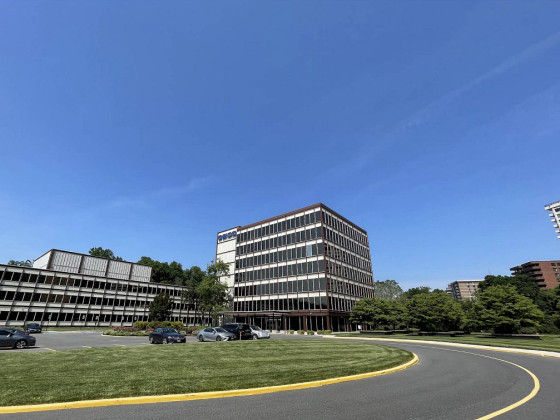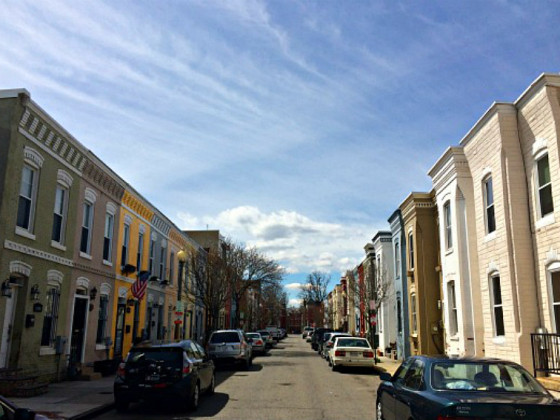What's Hot: A First Look At Friendship Commons, The Big Plans To Redevelop Former GEICO Headquarters
 The UrbanTurf Interview With the CEO of Zillow
The UrbanTurf Interview With the CEO of Zillow
✉️ Want to forward this article? Click here.

For those who don’t know, Zillow is an online real estate database and marketplace that rivals Trulia as one of the biggest real estate websites in the country. Founded in 2005 by Rich Barton and Lloyd Frink, Zillow offers many of the features available at other online real estate brokerages (listings, local real estate data), but it has become famous for creating a proprietary algorithm called the “Zestimate” that provides values for millions of homes around the country.
UrbanTurf recently interviewed Zillow CEO Spencer Rascoff about the website, the DC housing market and the evolving accuracy of its popular Zestimate tool. Rascoff, a former investment banker who co-founded the discount travel website HotWire.com in 1999, took the place of Barton as chief executive officer in September.
1) Can you provide some insight into the methodology that goes into Zestimate, Zillow’s home valuation tool, and why you think it is the most accurate valuation tool available? How does the tool take local market conditions into account?
Our team of economists and analysts developed a proprietary algorithm, the Zestimate, designed to estimate the current value of a home. It starts with data about the physical characteristics – number of bedrooms, baths, square footage, lot size – of all the homes in an area, and then looks at the relationship between these characteristics and the sale prices of homes in that area. We use those relationships to estimate the current value of an individual home. We’ve calculated historic Zestimates on most homes, and in some cases we have more than 10 years’ worth of data. So, not only can you look at any house’s value today, but you can also chart how its value has changed over time.
We also track the accuracy of our Zestimates and publish the results down to the county level. When a home sells, we compare the Zestimate value from the day before the sale to the actual sale price. The results are published here.
The Zestimate is designed as a research tool for home valuation, but ultimately, a home’s sale price is determined by the buyer and seller. By offering valuation information for 72 million homes across the country, coupled with data like recent transactions and neighborhood comparisons, Zillow gives buyers, sellers and owners a starting point to become more knowledgeable about home values.
2) Many UrbanTurf readers are home buyers in urban, dense markets. Do you find that the Zestimate is more or less accurate based on how urban or dense the housing stock is?
Zestimate accuracy is impacted by the frequency and history of nearby sales. Therefore, as long as an urban and dense housing stock is seeing frequent sales, the accuracy is likely to be improved compared to rural housing locales with few sales.
3) Looking at the state of the country’s housing market right now, is there anything you see in Zillow’s data that makes the DC market stand out?
The rate of DC foreclosures and foreclosure re-sales are lower than the national rate. Zillow’s Q3 Real Estate Market reports, which were released last week, showed that, across the United States, 20.1 percent of transactions in September were foreclosure re-sales. In the DC metropolitan statistical area, 16.6 percent of sales were foreclosure re-sales. Additionally, the rate of homes foreclosed upon has been trending upward nationally, whereas the DC Metro has been trending downward since it peaked in September 2008.
4) The web and mobile have changed the buying and selling of real estate a lot over the last 10 years, but the real estate industry is still considered a laggard in terms of technology adoption. What areas of the industry would you still like to see changed and/or improved by technology?
Technology is changing the way industries work, and real estate is no exception. The biggest trend we see is that real estate consumers are much more wired these days. The Zillow Mobile App has been downloaded more than 2.5 million times, and on weekends when home shoppers are out and about, 20 percent of Zillow’s total traffic comes from mobile.
What that means for the industry is that it’s more important than ever to respond quickly to consumers. Home shoppers have the ability to email real estate agents while standing in front of a house they like, and if they don’t get a quick response, they’re moving on to the next one.
5) There has been a lot of chatter over the years about the accuracy of Zestimate. Can you give us an update on the tool’s accuracy as it stands now?
We continually test Zestimates against actual sale prices to calculate our exact accuracy down to the ZIP code level. Nationwide, our median margin of error when compared against actual sales is 11.1 percent. This accuracy varies by area, and in DC, the margin of error is 9 percent. Not bad – but since our preliminary data comes from public records, when homeowners revise that data to reflect current home facts, we recalculate the Zestimate based on those revised facts. As we get more listings and updated home facts, our algorithm gets smarter and this accuracy increases over time. Again, however, a Zestimate is a starting point in determining the value of a home; it’s not an appraisal.
See other articles related to: editors choice, interviews, spencer rascoff, zillow
This article originally published at http://dc.urbanturf.production.logicbrush.com/articles/blog/the_urbanturf_interview_with_the_ceo_of_zillow/2667.
Most Popular... This Week • Last 30 Days • Ever

Today, UrbanTurf is taking a look at the tax benefits associated with buying a home t... read »

On Thursday night, developer EYA outlined its plans at a community meeting for the 26... read »

Only a few large developments are still in the works along 14th Street, a corridor th... read »

EYA and JM Zell Partners have plans for 184 townhomes and 336 apartments spread acros... read »

Today, UrbanTurf is taking our annual look at the trajectory of home prices in the DC... read »
- A Look At The Tax Benefits of Buying a Home Through a Trust
- A First Look At Friendship Commons, The Big Plans To Redevelop Former GEICO Headquarters
- Church Street, U Street + Reeves: A Look At The 14th Street Development Pipeline
- 520 Residences Planned For Former GEICO Campus In Friendship Heights
- The 10-Year Trajectory Of DC-Area Home Prices In 4 Charts
DC Real Estate Guides
Short guides to navigating the DC-area real estate market
We've collected all our helpful guides for buying, selling and renting in and around Washington, DC in one place. Start browsing below!
First-Timer Primers
Intro guides for first-time home buyers
Unique Spaces
Awesome and unusual real estate from across the DC Metro














